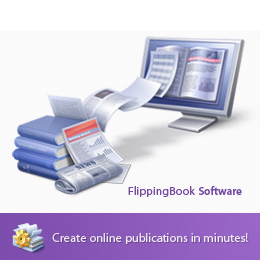Which Fonts Should You Use for Saving Ink
Though we are headed towards an era of paperless offices where all the information would be in strict digital format, the pace is quite slow. That ink-sucking printer is still an indispensable part of your home office because you are frequently required to print invoices, emails, web pages and other documents on paper.
Since ink is still the most expensive component in the print workflow, you can reduce printing costs of documents if you can figure out ways that will decrease the consumption of ink while printing. For instance, when printing a document in Microsoft Word, you can switch to “Draft output” and the toner will last much longer.
Use a Font with Holes
An interesting option to help you save ink is Ecofont. Ecofont is like the popular Arial font but it has these little holes punched in the letters. These holes aren’t really visible in the printed document (that uses standard font sizes like 11px) but will save money as no ink is required when printing these dots.
Ecofont is available for download on Windows, Mac, and Linux systems. It may not be a good idea to use Ecofont in client communication but you can definitely consider using this font for personal or internal use.
Printing Web Pages with Custom Fonts
If you are printing web pages, I highly recommend Readability – this is a bookmarklet that will not only remove images, ads and other clutter from web pages but will also replace the font that was originally used in the formatting of that page.
Readability can sometimes remove sections from web pages that you would like to see in the print version. If that’s also a problem for you, check out PrintWhatYouLike.com – this is also a printing bookmarklet but it gives you complete control over the page layout including the font family that is used for rendering that page (see video demo).
Both the above bookmarklets require a live internet connection to work. If you are looking for an alternative that will work offline, check out Green Print – they have a free version for Windows though the Mac edition costs a few bucks. Another good option is Smart Web Print from HP but that’s only available on Windows.
Which is the Best Font for Printing Documents
Now consider the third scenario. You have a document – say some training material or presentation handouts – that you want to print without sacrificing readability.
Fonts like Arial, Times News Roman, Courier, Helvetica, etc. are generally available on every machine but which one among them is the most economic typeface when it comes to printing?
Matt Robinson recently conducted a fairly unique study to determine the ink usage of these different typefaces. They used ballpoint pens to hand draw the same text at the same size but using different fonts and here’s the result.
Garamond* followed by Courier turned out to be the most economic fonts of them all while Impact and Comic Sans consumed the maximum ink. This is definitely not a “scientific study” but you still get the idea.
[*] Most Harry Potter books are set in 12pt Adobe Garamond.
Related Posts :
100 Top Hip-Hop Fonts 129 Fonts | TTF | 9.4 MB Download Mirror
by Donald Nelson My first web site was nothing more than a brochure that was transformed into ...
The built-in Safari web browser of your iPad (and iPhone and iPod Touch) is pretty nice but it s ...
There are basically three different dates associated with any "public" web page that’s available ...
This is original design of Facebook when it was called thefacebook.com – you were required to ...
Posted on Saturday, October 23rd, 2010 at 4:16 pm | Category: Articles |
Make a Donation
Subscribe by email
Magazine of the week
Categories
- Adobe Photoshop Tutorials
- Ajax
- Articles
- Companies
- Corporate / Elegant
- CSS
- Designers Work
- Flash
- Fonts
- Freebies
- Freelance / Portfolios
- Galleries
- Graphic Art
- HTML
- HTML5
- Icons
- Identity
- Illustration
- Internet
- Java Script
- Jquery
- Magazines
- Marketing
- One Page Websites
- Photo Creativity
- Photoshop
- Print Design
- Stock Images
- Typography
- Vectors
- Video Tutorials
- Wordpress
- Wordpress Themes








